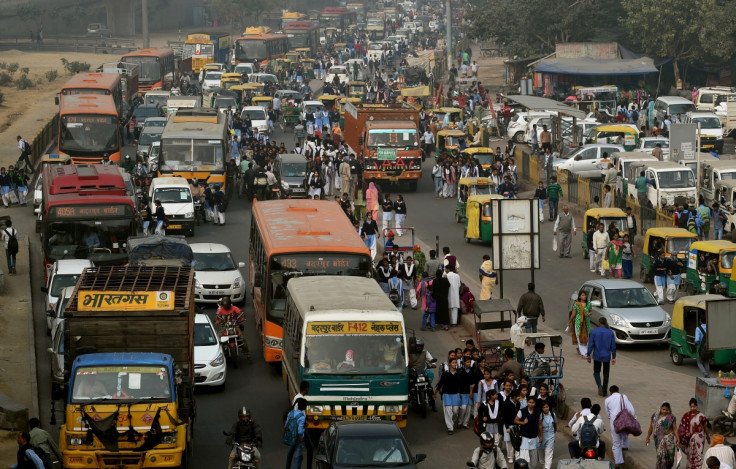Delhi odd-even rule: Thousands of commuters fined for violating pollution-reducing efforts

Indian authorities are believed to have fined 1,800 commuters on Monday 4 January for violating the Delhi government's odd-even traffic rule. The scheme attempts to bring down Delhi's high pollution levels by reducing traffic on the roads.
Brought into effect from 1 January 2016, the odd-even trail means that vehicles with even number plates will only be allowed on the roads on even days of the month, while odd number plates will only be allowed on odd days of the month. The scheme is currently being trailed for 15 days to test whether it is successful.
Those found breaking the rules were fined Rs. 2,000 (£30, £20). However, despite the high number of people attempting to break the rules so far, Delhi's Transport Minister said that the first working day of the odd-even rule (4 January) had been a success.
Gopal Rai told the Hindustan Times: "Delhiites have followed the odd-even rule and we are happy about it. There was speculation about chaos on Monday but everything went off smoothly. There have been few violations but over 99% have complied with the rule."
Fewer traffic jams were reported throughout the city as the trial entered its fifth day. The Delhi Metro experienced similar crowds to those during the December rush hours, with officials prepared to deal with the Metro's full capacity of 3.4 million passengers per day. Extra buses were also put on the road, with the Delhi government having formed monitoring teams to receive feedback from metro stations and to assess crowding in buses.
Despite the increase in public transport facilities, taxi services Uber and Ola Cabs both reported a surge in cabs as the odd-even trial began. A carpooling service launched by Uber in December also experienced high demand as people chose to take on the roads together.
The 15-day odd even trial scheme takes affect from 8am to 8pm every day, barring Sundays when the rule does not apply. The scheme also exempts certain commuters from the rule, including cars driven by women, two-wheelers, CNG-driven public transport, and emergency service vehicles. A number of "VIPs" have also been exempt from the rule, prompting controversy in the country.
© Copyright IBTimes 2025. All rights reserved.




















